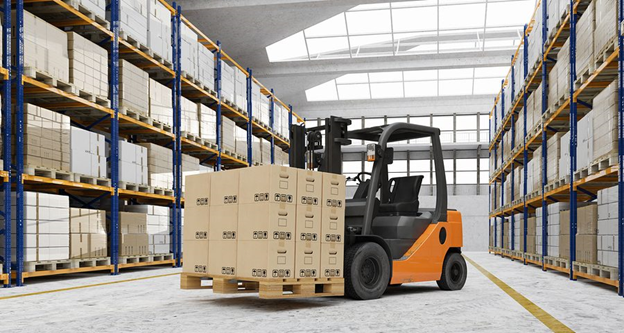Business management involves a lot of logistical issues, one of them being supplying equipment to improve its organization of work. If you have a business that requires heavy lifting and moving of goods around the warehouse, then you need one or more forklifts.
With that said, the choice between purchasing or renting a forklift is a pivotal decision that can significantly impact your business’s efficiency and overall financial health. To help you come to a favorable decision, here are key considerations to take into account and ensure that you are making the right choice.
Assessing your workload dynamics
When considering the buy vs. rent dilemma, the first step is to closely examine the dynamics of your workload. Assess the intensity, duration, and seasonality of your material handling tasks. For example, a distribution center experiencing a surge in orders during peak shopping seasons might find renting a forklift during these periods more cost-effective than making a full-time purchase.
Or, a major e-commerce platform often witnesses a substantial increase in order volumes during holiday seasons. Renting additional forklifts during these peak periods allows them to efficiently manage the temporary surge in demand without committing to the long-term costs of ownership.
Local regulations and compliance
As a business, you need to follow regulations on a local level and some of them may determine what kind of forklift you can have. For example, Sydney, like any other city, may have specific regulations regarding the use of forklifts. Choosing a forklift for rent in Sydney from a local provider can ensure that the equipment meets the city’s safety and environmental standards.
This means you don’t have to worry about anything else besides operating the forklift responsibly and for the right purposes. Local rental companies will provide you with a model that is appropriate for traffic conditions, weather, events, and your specific needs. For a small business, buying a forklift can mean a lot of paperwork, hassle, and money to have one thus making renting a better choice.
Evaluating the total cost of ownership
When deciding between buying and renting a forklift, it’s imperative to move beyond initial costs and assess the Total Cost of Ownership (TCO). TCO factors in not just the upfront expenses but also maintenance, repairs, operational costs, and potential resale value. This comprehensive approach provides a clearer picture of the financial impact associated with each decision.
Understanding TCO involves projecting costs over the forklift’s lifespan. For example, in purchasing, consider depreciation, maintenance, and potential resale value. A manufacturing company, after TCO analysis, may find that despite significant upfront investment, ownership offers long-term savings, guiding their decision-making based on a holistic understanding of financial implications.
Flexibility and short-term cost efficiency of renting
Renting offers flexibility and short-term cost efficiency, especially for businesses with unpredictable workloads. Short-term rentals allow you to scale up or down based on demand without committing to a substantial upfront investment.
For instance, consider a landscaping business that experiences seasonal highs and lows. Renting a forklift during the busy spring and summer months provides the necessary equipment without the burden of ownership during slower periods.
Upfront costs vs. long-term investment of buying
Purchasing a forklift demands a substantial upfront investment, but it can be viewed as a long-term asset. Consider the depreciation, maintenance costs, and potential resale value. For instance, a construction company with a consistent need for heavy material handling might find that investing in a forklift proves to be a wise long-term financial decision.
Just imagine a construction company with ongoing projects requiring frequent material transportation. The regular use of a forklift justifies the initial investment and the long-term savings from ownership become evident.
Sustainability considerations
One of the biggest aspects of the business world today is sustainability. When considering whether to buy or rent a forklift, taking this into account is highly important. Opting for electric forklifts will not only significantly reduce carbon emissions during operation but also help the green initiatives.
Because of this, rental companies often prioritize maintaining and updating eco-friendly forklift models, allowing businesses to access the latest green technologies without the commitment of ownership. Furthermore, these companies typically handle responsible end-of-life disposal, ensuring that retired equipment is recycled and disposed of in an environmentally friendly manner.
Technological advancements and upgrades
Forklift technology evolves rapidly, introducing features that enhance safety, efficiency, and environmental sustainability. If staying at the forefront of these advancements is crucial for your operations, renting might be a more attractive option. Rental companies often update their fleets with the latest models, allowing you to access advanced features without the burden of frequent purchases.
For example, a logistics company dealing with delicate or high-value goods. Opting for forklift rentals enables them to consistently upgrade to models with the latest safety technologies, ensuring the protection of their valuable cargo.
The bottom line
The decision to buy or rent a forklift depends on various factors unique to your business. You can decide by meticulously evaluating your workload, financial capabilities, operational needs, and environmental considerations. The choice should help your business grow and ensure efficiency in an ever-evolving market. Whether you opt for the stability of ownership or the flexibility of rentals, the key is to adjust your forklift strategy with your business goals for sustained success.



